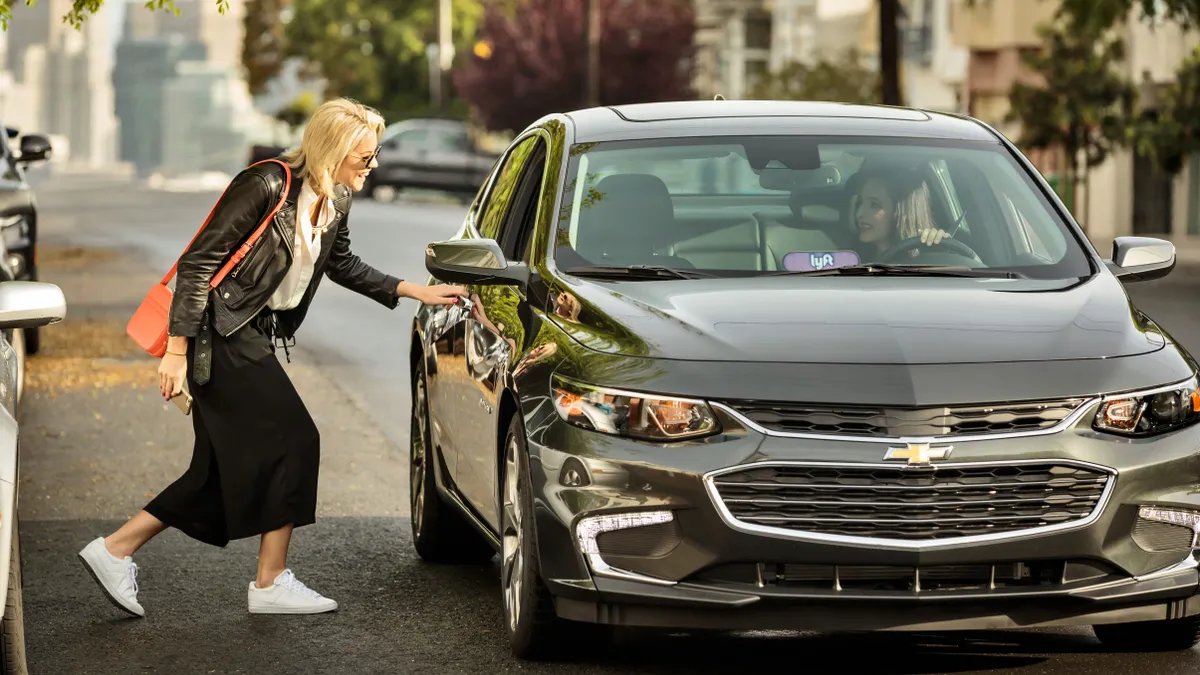Dive Brief:
- A report to the United Kingdom government recommends a cap on the number of licenses available for Uber and other ride-hailing services as part of a broader suite of measures to increase safety in the private hire vehicle industry. The Task and Finish Group on Taxi and Private Hire Vehicle Licensing report also recommends minimum licensing standards for drivers.
- Among the other recommendations in the report: installation of audio and video CCTV systems in private vehicles; clear guidelines for rejection of a license; a database of all licensed taxi and for-hire drivers; and a requirement that all drivers be able to speak or write in English. The recommendations are meant to inform a potential revision of taxi rules through legislation.
- The report also says that "low pay and exploitation of some, but not all, drivers is a source of concern," and that licensing authorities should monitor "any evidence of a person or business flouting employment law" as part of a licensing review.
Dive Insight:
Uber’s safety record has long been at issue in the UK. London famously rejected a license renewal for Uber over the company’s safety problems, only granting the company a new 15-month license this June after a court battle. In response, Uber instituted a number of changes in London, including restricting drivers only to areas where they hold a private for hire vehicle license, and capping the number of hours a driver could work.
The latest recommendations would see the UK following the lead of New York City, which capped ride-hailing vehicles this summer in a bid to combat congestion and ensure fairer pay for drivers. Other cities — including Chicago — are considering similar caps, while others are considering a minimum wage or a rate increase to supplement drivers’ wages. It is telling that the UK report offers driver pay as a possible criteria for licenses, since it would put more pressure on companies to up wages.
London Mayor Sadiq Khan has sought the power to cap private hire vehicles for years, and has tried to make small regulatory tweaks to give it more power. The report notes that a cap could help “solve challenges around congestion, air quality and parking” while also addressing “drivers’ working conditions.” Still, these are only recommendations, and the slow pace of regulations elsewhere in response to a rapidly changing market suggests that it may still be a while before the UK moves to enact any new rules.












